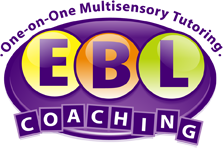How to Help your Struggling Learner
Does your child struggleat school? Do they have difficulty sounding out new words when reading, breaking down math word problems, or expressing their thoughts on paper when writing? It can be difficult to watch your child struggle. Help your child improve their academic skills with the ideas detailed below.
Be your child's advocate
If you notice your child is struggling, contact their teacher and set up a time to discuss what you are seeing at home. Find out if the teacher is noticing the same challenges (or others) and if so, ask for specifics. Does your child have trouble staying focused? Has the teacher noticed difficulty with reading, writing, and/or math? Try to get as much feedback as possible, and then maintain regular communication with the teacher to discuss any changes or improvements. If your child continues to struggle, you may want to find out what other resources, including extra help or tutoring, the school offers. If these challenges persist, you might want to request a full evaluation to determine if there are any learning disabilities such as dyslexia, ADHD, executive functioning deficits, or other challenges that may require more support.
Build stronger study skills
Help your child build stronger time management, organization, planning, and overall executive functioning skills. To build time management skills, for example, teach your child to estimate how long they think a task will take to complete (and write down the ET, or estimated time) then compare it to the actual amount of time the task took to complete (and write the AT, or actual time). In the beginning, there is often a large discrepancy between the ET and AT, but the more your child practices this strategy, the better their time management skills will become. You can also help your child set up a 3-tier organizational system for filing papers they don't need to be carrying with them on a regular basis. To do so, select one day per week to be the "clean out my notebook day" and file away any old papers into an accordion file divided into 3 sections for each class: homework, notes, and tests/quizzes. If it's challenging for you to help your child build these executive functioning skills, you may want to consider hiring an executive functioning coach.
Try using a multisensory approach
Research tells us that using a multisensory approach to help struggling learners is the way to go! For young children who are learning to read and write, try having them practice writing letters in colored sand or sugar. To do so, pour sand or sugar on a cookie tray and have them trace each letter with their finger, while saying the formation aloud, like "around, up, and down" for lowercase a, or "down, up, and around" for lowercase p. For older students, help them build their reading comprehension skills by teaching them to read a passage and then highlight the topic (1, 2, or 3 words describing the passage) in blue, the main idea (what the author is saying about the passage) in green, and the important details in yellow. The more multisensory instruction you can provide, the better!
If your child continues to struggle despite your help at home, you may want to consider hiring a tutor. There are various types of tutors who specialize in different areas; for instance if your child struggles with reading, you may want to consider Orton Gillingham tutoring. The Orton Gillingham approach can do wonders in helping your child build stronger decoding and spelling skills. If they struggle with math, you may want to consider a tutor who can use a multisensory approach and lots of manipulatives to build their math skills, or you might also consider a writing tutor or executive functioning coach. The more specialized the tutoring can be, the better!
It can be challenging to watch your child struggle in school. Yet if you advocate for them, help them at home, and possibly consider hiring a tutor, you can help them achieve academic success as they progress through school.
 |





